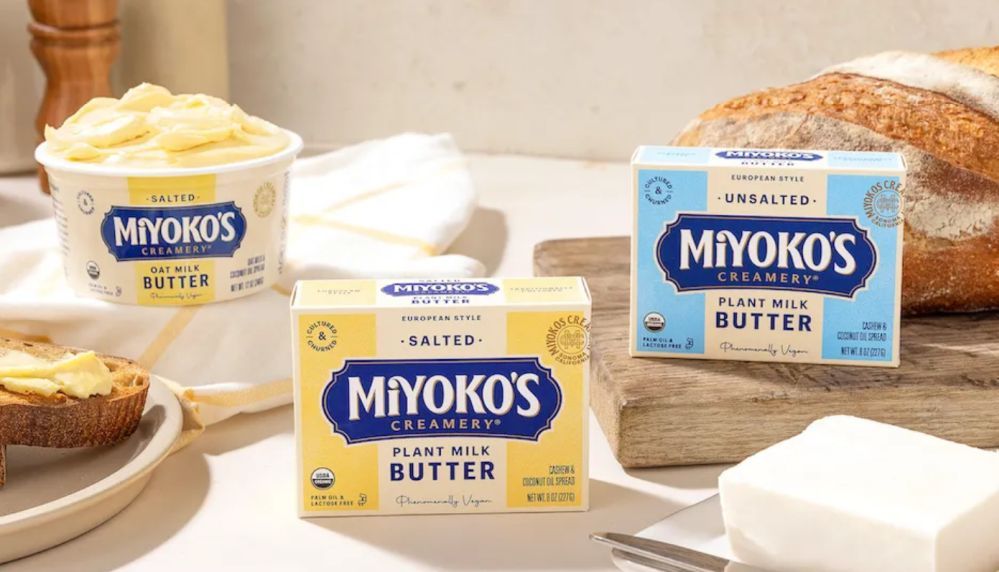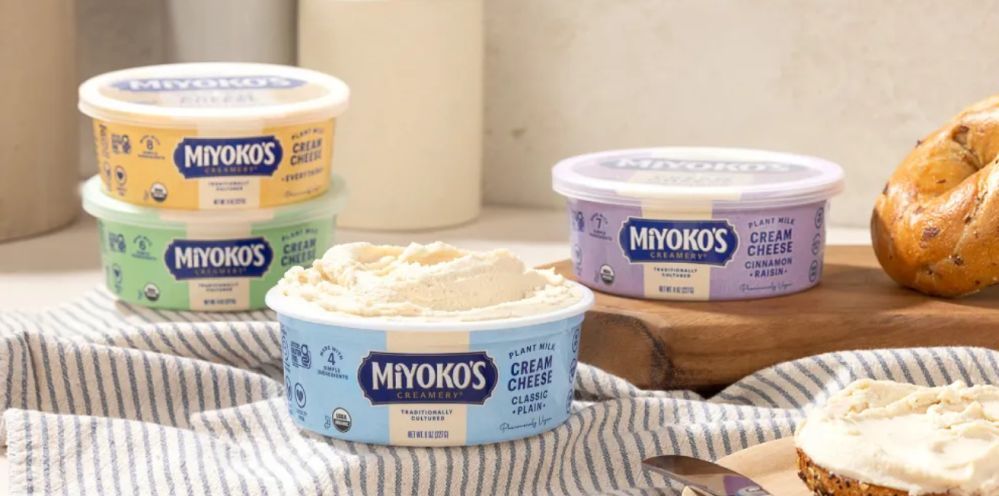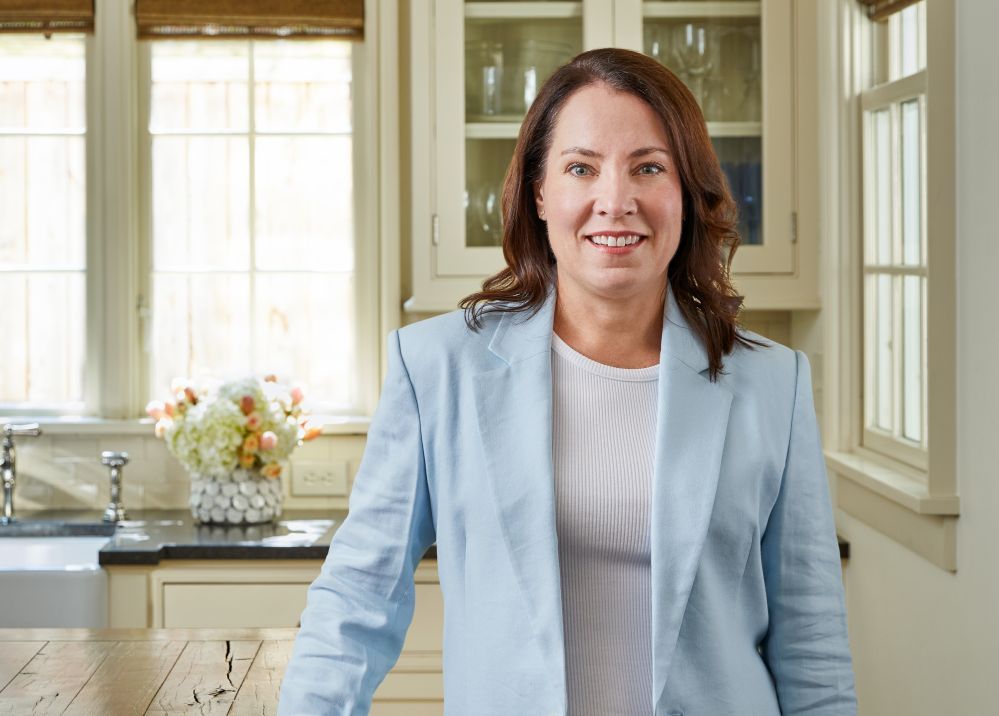Six months after the board’s ugly spat with its namesake founder became public, plant-based dairy co Miyoko’s Creamery has a new CEO. AgFunderNews (AFN) caught up with former Coca-Cola exec Stuart Kronauge (SK)—who takes the helm next week—to discuss what’s next for the brand.
AFN: What attracted you to Miyoko’s?
SK: When I was approached with this opportunity, I wasn’t really looking but it just spoke to me because the company is unbelievable. I kind of stumbled across their products a while back and I was blown away, so I want other people to have that experience. [Founder and former CEO] Miyoko [Schinner] is so creative, she’s the kind of OG for plant-based nutrition.
AFN: Did the public wrangling between the board and the founder give you pause?
SK: It certainly seemed messy, and yes, I worried about it for just a minute like everyone else standing on the sidelines, but they figured it out and I’m not worried about it anymore. They have an incredible team and culture and I think everybody’s focused on the future and building on the legacy that Miyoko created.
AFN: The company has recently laid off some staff. Are more cuts to come?
SK: I think the size of the company is good and there’s a couple places where I think we need to bolster and add talent in areas such as marketing and some administrative functions. But first I need to get in there and understand the culture, understand the team and make sure everyone is valued, seen, heard, contributing, and understands the growth plan.
AFN: US retail sales of plant-based cheese were down 2% to $233 million last year, while sales of plant-based butter were up 15% to $311m.* Are these niche markets?
SK: I think there’s fairly significant untapped potential. People who are vegan or vegetarian are our most loyal rabid fans and we’ll always take care of them, but there are a lot of people who want dairy-free. This isn’t just about ‘plant-based.’ If you think about lactose free milk, for example, that is a monster category and I think for some people it doesn’t translate that plant-based means dairy free and lactose free.
AFN: If awareness is still low, does this mean you plan to spend more on marketing?
SK: I think we’re going to need to invest more to get the message out in different channels in different ways and I think the board is in full support of that.
AFN: The company said it was looking for someone with ‘proven P&L experience that has scaled a larger business.’ What skills and disciplines are you bringing to Miyoko’s?
SK: I spent over two decades at Coca Cola working in the retail and foodservice business on monster brands and baby brands, so I’ve seen the movie, I know the players, I understand unit sales, margins, input costs… But it’s also about making sure that everybody knows and understands the P&L, and that it’s not just a handful of people who are somehow responsible for it.
So I think there’s education and accountability that needs to come into play there and with that comes behavior. Are we spending too much on X? Are we not spending enough on Y? How do X and Y relate? In my experience, the more transparency of information that the whole team can have, the better off you are in your growth plan, because when the right hand doesn’t know what the left hand is doing, you have waste.

AFN: How is Miyoko’s performing?
SK: I haven’t started yet, so I can’t tell you the exact trajectory although I think like most plant-based brands, they’ve had their ups and downs and there’s some work that needs to be done to make the brand more accessible. But they have groundbreaking, high-quality products, and a mission, so there is big upside potential.
AFN: Miyoko’s has butter, artisanal cheese wheels, cream cheese and pourable mozzarella, but no presence in slices or shreds, after pulling these from the market a while back. Does it need to play in this space?
SK: Miyoko [pulled these products because she] has such high standards for the brand, which I’d support. They just weren’t meeting what she wanted from her brand. But I think there’s a role for both mainstream offerings and highly curated offerings. That’s one thing that’s super cool about this brand; it’s got a lot of stretch.

AFN: Where do you see growth opportunities?
SK: Foodservice to me is a big fat opportunity, along with innovation and new products, but mostly, it’s about raising consumer awareness, making people understand that plant based nutrition is for everybody.
My husband is not plant-based and he loves Miyoko’s butter. My daughter can’t give up chicken fingers, but she loves the portable mozzarella. Consumers are a little bit confused about plant-based right now. Is it too processed? Is it healthy? So I think the first job is to make sure they understand this is a very clean, high integrity, incredibly delicious, high-quality product that has a role in their lives.
There are some holes in the brand’s retail distribution, but I think foodservice is very under leveraged.
There are so many opportunities to get Miyoko’s ingredients into more products in foodservice, and not just the pourable mozzarella, but think of things like garlic toast where you want a plant-based butter. I can see Miyoko’s in high end hotels, wineries, things like that, but I think there’s a broader opportunity to get into more mainstream offerings as well.
Though both the plant-based dairy and cheese categories have experienced significant growth respectively, there are still white space opportunities for continued brand awareness and education among consumers. The most recent data shows that plant-based cheese sales reached $230 million and household penetration at 5%, with repeat buying rate at nearly 50%. To me, this solidifies the importance of trial and education and I’m excited to dive into this as I lead Miyoko’s into its next chapter.
Likewise, plant-based butter dollar sales increased by 15%, showcasing consumer interest and curiosity in plant-based alternatives. We look forward to continuing innovation across the entire portfolio that contributed to Miyoko’s organic plant-milk butter becoming a best-selling category leader.
*Source: SPINS data, calendar year 2022, US natural and conventional retail channels, shared by the Good Food Institute (GFI) and the Plant Based Foods Association. See more plant-based category data on p43 of this GFI report.





